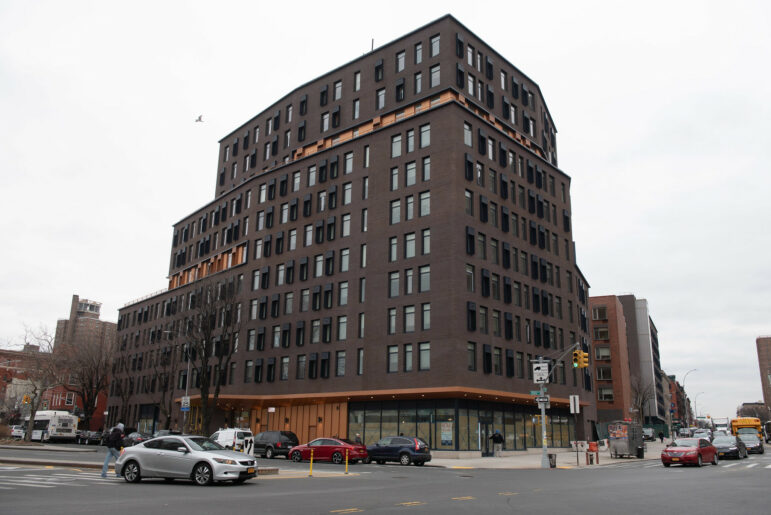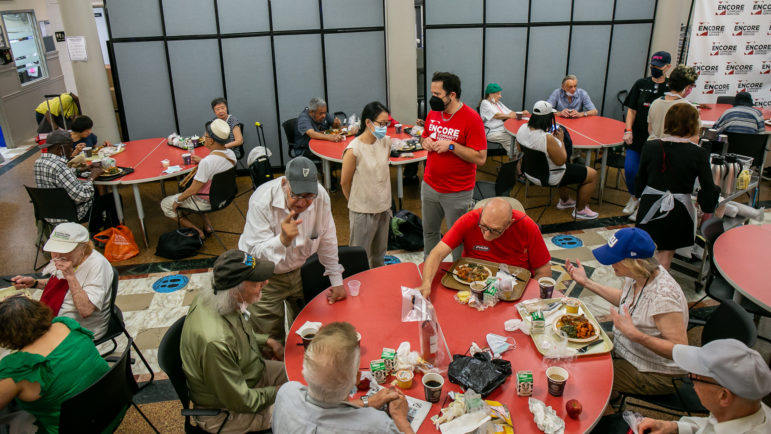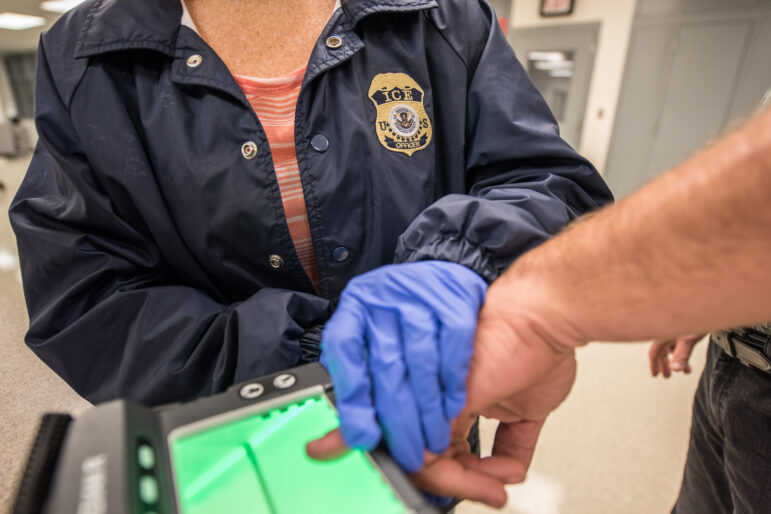Bob Kohler has been standing in the same place for nearly five months, but that doesn’t mean he hasn’t been making progress.
Kohler is the most dedicated member of DASIS Human Rights Watch, an ad hoc group of activists formed to ensure that the city finds places to stay for homeless people with AIDS. The volunteers have been camping out on the sidewalk in front of the city’s largest Division of AIDS Services and Income Support office since September 8. They wait every day, sometimes until 1 a.m., until each homeless client looking for emergency shelter has been matched up with a decent place to sleep.
“I’ve been a gay activist for 40 years,” Kohler says. “After a while you get tired of yelling at politicians. This way, you feel you are making a difference.”
DASIS is the city agency that provides benefits–like emergency housing–for poor people with AIDS and HIV. Unfortunately, its success has been erratic. Though a November 1999 court decision requires the city to honor such emergency requests the day they’re made, beginning last August, DASIS started turning away dozens of homeless AIDS patients daily, sending them to non-existent addresses or to hotels that didn’t accept DASIS clients.
That’s when DASIS Watchers took matters into their own hands. At 5 p.m. every day–Kohler gets there at 4–volunteers arrive at DASIS’ main office on 8th Avenue to ensure clients get housing. As they trickle out, Kohler and other Watchers approach and ask, “Did you get housing?” The volunteers do on-the-spot checks, using their cell phones to call a hotel and confirm that a room is waiting. Sometimes, they even accompany the client to the hotel.
Over 150 people have volunteered with the group, and about three are there every night, says Jennifer Flynn, head of the New York City AIDS Housing Network and DASIS Watch creator.
Some Watchers have even gone to jail for DASIS clients. In September, Kohler and Flynn were among 11 protesters arrested after chaining themselves to a pillar inside the 180 Water Street headquarters of DASIS’ parent agency, the Human Resources Administration.
“That was when the clients really started to respect us,” Kohler says. “They said, ‘You would go to jail for me?’” With his bright blue eyes under a full head of white hair and with 20 years’ experience in show business, Kohler has become something of a celebrity among gay and lesbian activists, who call him “Hollywood Bob.” He’s affable and sweet, especially with DASIS’ repeat customers, but he’s also tough: By his count, he’s only missed three nights of the Watch since it began.
Tonight, several clients linger on the sidewalk to chat. One, Barbara, walks up to Kohler and squeezes him like a stuffed doll. Her red-framed glasses match her curly, newly dyed locks.
“Do you like my hair, Bob?” she asks.
“No, I hate it,” he kids, stuffing a few dollars in her coat pocket.
Later, a frantic man rushes up and beats on the locked glass doors, hoping they’ll still let him in. Though the office remains open until all are placed, the DASIS building closes at 5 p.m., and tardy clients risk a night on the street. One strategy the Watchers have devised is to sneak latecomers in through the exit-only side door when other clients come out. It is hard for caseworkers to deny a desperate person face-to-face, Kohler says.
“Wait till someone comes out the door,” Kohler offers, pointing to the green door to the side of the main entrance. “Then you can go in.” The man follows his advice and gets inside.
As caseworkers start going home for the night, only one or two say goodbye. Most avoid eye contact, ignoring the Watchers and leaving their question–Has everyone been placed?–unanswered.
“A lot of the caseworkers want to help, but their hands are totally tied,” Kohler says. “One said to me, ‘I can’t talk to you, but I want to tell you something–I think you people are doing a wonderful job.’ “
And the Watchers claim they have made a difference. Initially, volunteers would be waiting on the street until 1 a.m. Now the watch routinely ends at 6:30 p.m. with every client placed. More than that, since the vigil began, the agency has put doors on the bathroom stalls and fixed the water fountain (essential for people on medication). In addition, caseworkers stay longer and are more respectful toward the clients, according to Flynn.
DASIS Watch actually considered disbanding after two weeks in early January when no clients were left stranded, but then, in mid January, two people were denied housing. Flynn and Councilmember Christine Quinn picked up the tab for a hotel room over the four-night Martin Luther King weekend.
So for now, the volunteers will continue their vigil. And people like Bob Kohler will stand on the same sidewalk, comfort the clientele that linger with packed bags outside the building and ask each one, “Did you get housing?”








